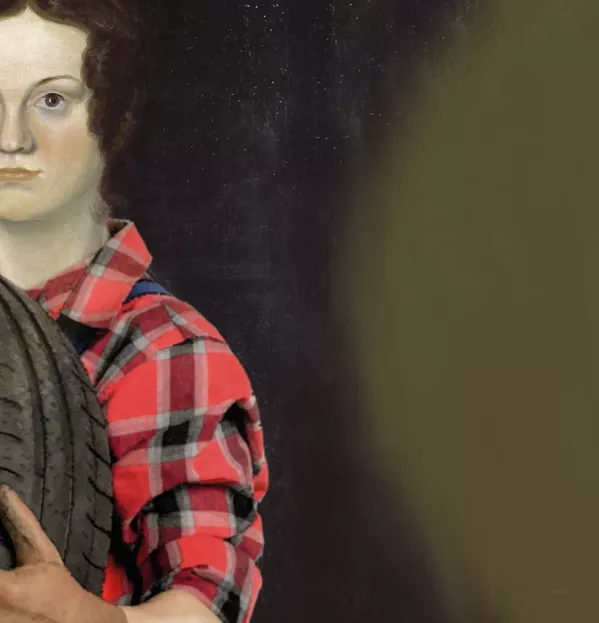Do car mechanics really need to study Brontë?

Most of us start a journey by thinking about where we want to end up. We know that we want our young people to be numerate and literate; able to think, analyse, interpret, make decisions and come to opinions based upon a solid grasp of the information available. The question is, how do we get there?
I think we would all agree that every individual without confidence in literacy and numeracy should be given the opportunity to develop those skills in a supportive and effective environment. But I think many of us would also agree that the current funding condition, through which young people without a C or a grade 4 at GCSE in English and maths are effectively forced to continue to study towards that GCSE, is a flawed policy.
We want our young people to be confident in their use of language and numbers, so we set them on that journey.
We put a brick wall in front of them and ask them to get over it. If they don’t manage it the first time, we take them back to square one and ask them to run up against that brick wall time and time again.
While a small number manage to scale the obstacle at a second and third attempt, many sit at the bottom with their confidence dented, remaining thoroughly demoralised. Surely we should be finding these students a different route to the same destination?
Stranger than fiction
I recently observed an all-male class of motor vehicle students preparing to sit their GCSE in English. They were studying 19th-century non-fiction and comparing a letter written by Charlotte Brontë, describing her time as a governess, with a modern broadsheet newspaper article on roughly the same topic.
They were desperate to pass the GCSE, and working very hard to meet the exam requirements. I love the writings of all the Brontë sisters and would endorse any opportunity to introduce young men and women to these great works. But do motor vehicle students really need to develop skills in interpreting a non-fiction language and the style of long-gone writing? Wouldn’t it be better for them to learn how to understand and interpret today’s language, to understand how to handle the complex technical instructions needed in their line of work? It would appear not: this June’s AQA GCSE paper required candidates to interpret and analyse a Victorian newspaper article describing how the writer felt now that her son had grown up. I have a feeling that the brick wall we are expecting our young people to climb is now placed on completely the wrong path and is not taking us where we want to go at all.
So what is the alternative? Pragmatically speaking, there are probably two routes that could take our young people in the right direction. Some students will need to achieve a grade 4 or higher at GCSE because they need this qualification for their future career. But I would suggest that the majority of students on a range of vocational qualifications would benefit from other approaches.
A vocational approach
Firstly, the vocational qualifications themselves (whether T levels, apprenticeships or other qualifications) should embed the type of literacy and numeracy skills required in the specification design and the assessment requirements, in a stepped way. This would allow students to explicitly learn these skills through their main qualification, and employers could have the confidence that the young person is competent in their grasp of the language and numbers that are required for the job in hand.
If we designed these qualifications well then that could be enough to take us to where we want to be. However, sometimes it is helpful to “belt and braces it”, as we say at my college. So, with some thought and creativity, it should be possible to design separate but aligned English and maths qualifications, which test the skills we want to develop in all individuals, whether young or old, and which allow us to place the student not only on the right path, but also on the right point on that path without the pressure of institutional “progress measures” or brick walls.
If we want our young people to make this journey successfully, we shouldn’t expect them all to travel at the same pace. We should offer appropriate support and markers along the way, and we should make sure that the view at the end is going to be worth the effort. In other words, the pursuit of English and maths should be part of a broader education that will provide the foundations for life rather than just the skills required to pass the exam at the required grade.
Otherwise, in the words of Charlotte Brontë herself, “prejudices, it is well known, are most difficult to eradicate from the heart whose soil has never been loosened or fertilised by education: they grow there, firm as weeds among stones.”
Alison Birkinshaw is president of the Association of Colleges and principal of York College
You need a Tes subscription to read this article
Subscribe now to read this article and get other subscriber-only content:
- Unlimited access to all Tes magazine content
- Exclusive subscriber-only stories
- Award-winning email newsletters
Already a subscriber? Log in
You need a subscription to read this article
Subscribe now to read this article and get other subscriber-only content, including:
- Unlimited access to all Tes magazine content
- Exclusive subscriber-only stories
- Award-winning email newsletters